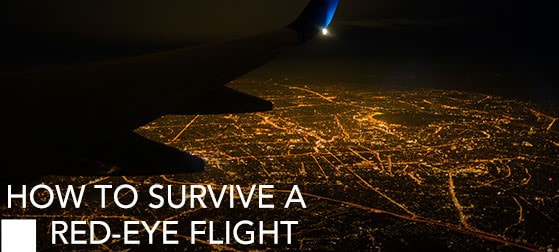Beat Jet Lag in Advance – Try to advance your body clock when traveling eastbound. You will have to wake up earlier and go to bed earlier than you normally would. Do the reverse when headed westbound. Try this before your trip so you have a better chance of being into the right time zone when you deplane.
Choose Your Seat Carefully – The right seat is critical. Avoid seats located near the restroom and the seats that don’t recline. Sitting in the aisle makes it likely you’ll get an elbow injury. If you sleep on a certain side of the bed at home, choose a window seat on the side of the plane that provides you with a more comfortable experience and maybe some additional time to sleep.
Eat Light & Right – Look for the healthiest, leanest meal you can find, preferably at the gate before you board. Avoid spicy foods that might cause an upset stomach. In-flight meals are overly processed and salty, so they may make you feel bloated or more dehydrated during the flight.
Hydrate Like It’s Your Job – Drink water, and skip the alcohol and caffeine. The pressurized cabin usually leaves passengers a little dehydrated, so buy a large bottle of water at the gate before you board the plane and drink water steadily throughout the flight.
Come Prepared to Sleep Well – Bring a comfortable travel pillow, sleep mask, earplugs or noise-canceling earphones—worth every penny to frequent fliers. Take off your watch and accessories to remind yourself that it’s bedtime. And be sure to buckle your seat belt over your blanket so that the flight attendant doesn’t need to disturb you to check it.
Freshen Up – Bring a toiletry bag with all of the usual items you use to get ready in the morning, including a toothbrush, mouthwash, deodorant, hairbrush and a fresh set of clothes. You will feel mentally more prepared to tackle the new day after freshening up.
Use a Travel Pro – Of course, the best way to sleep on an airplane is to be relaxed! They'll take care of all the details and save you any worry.








